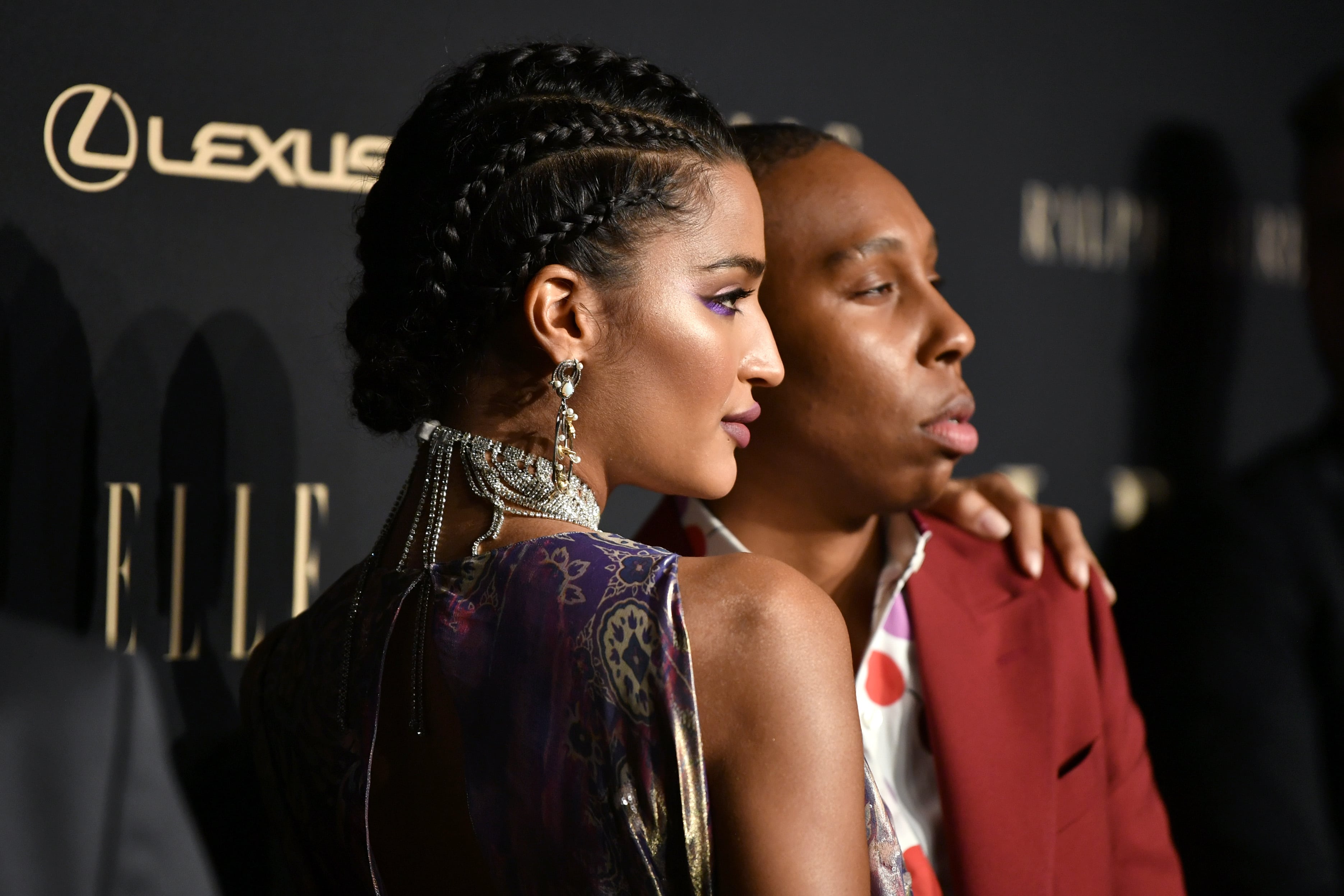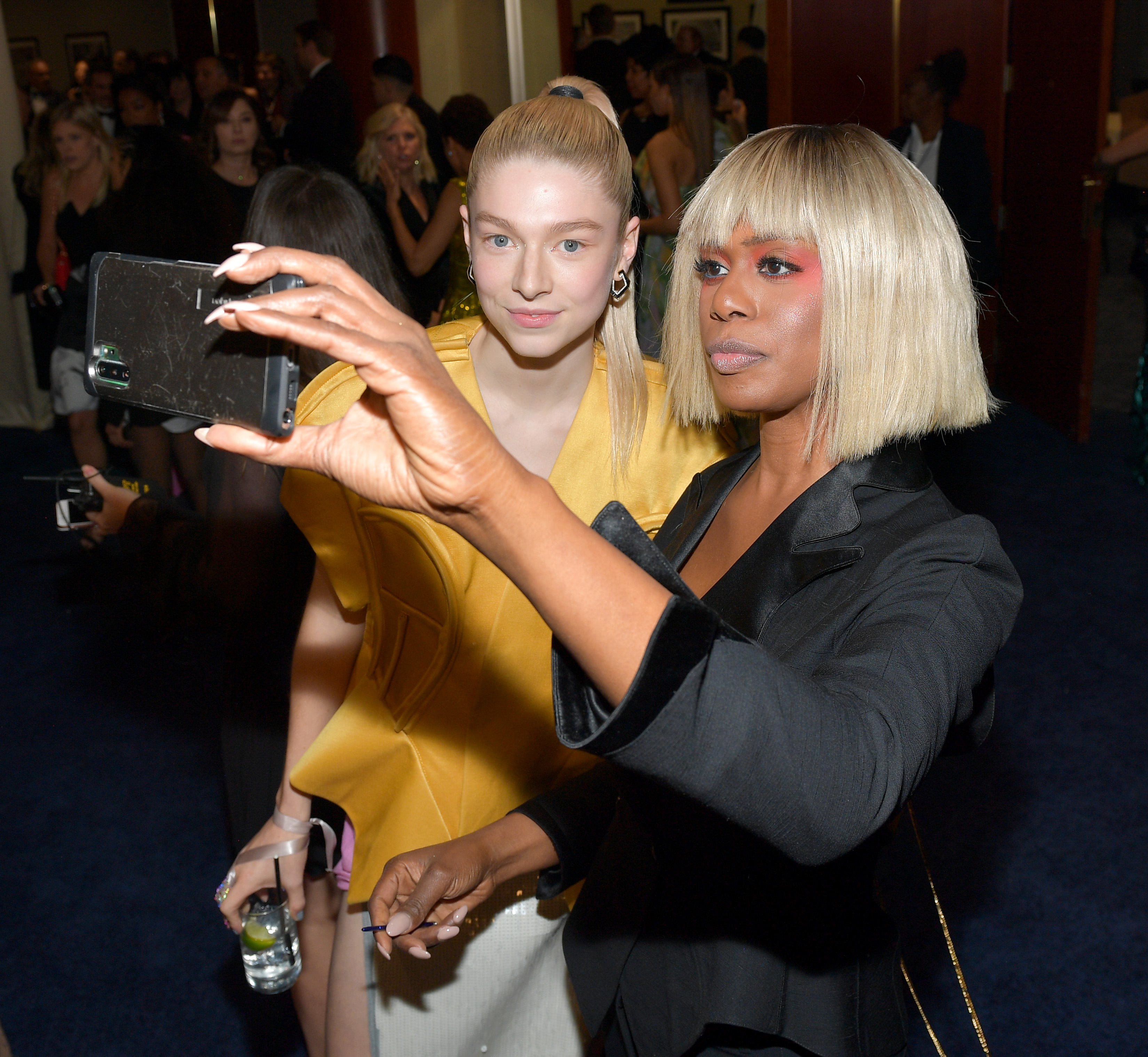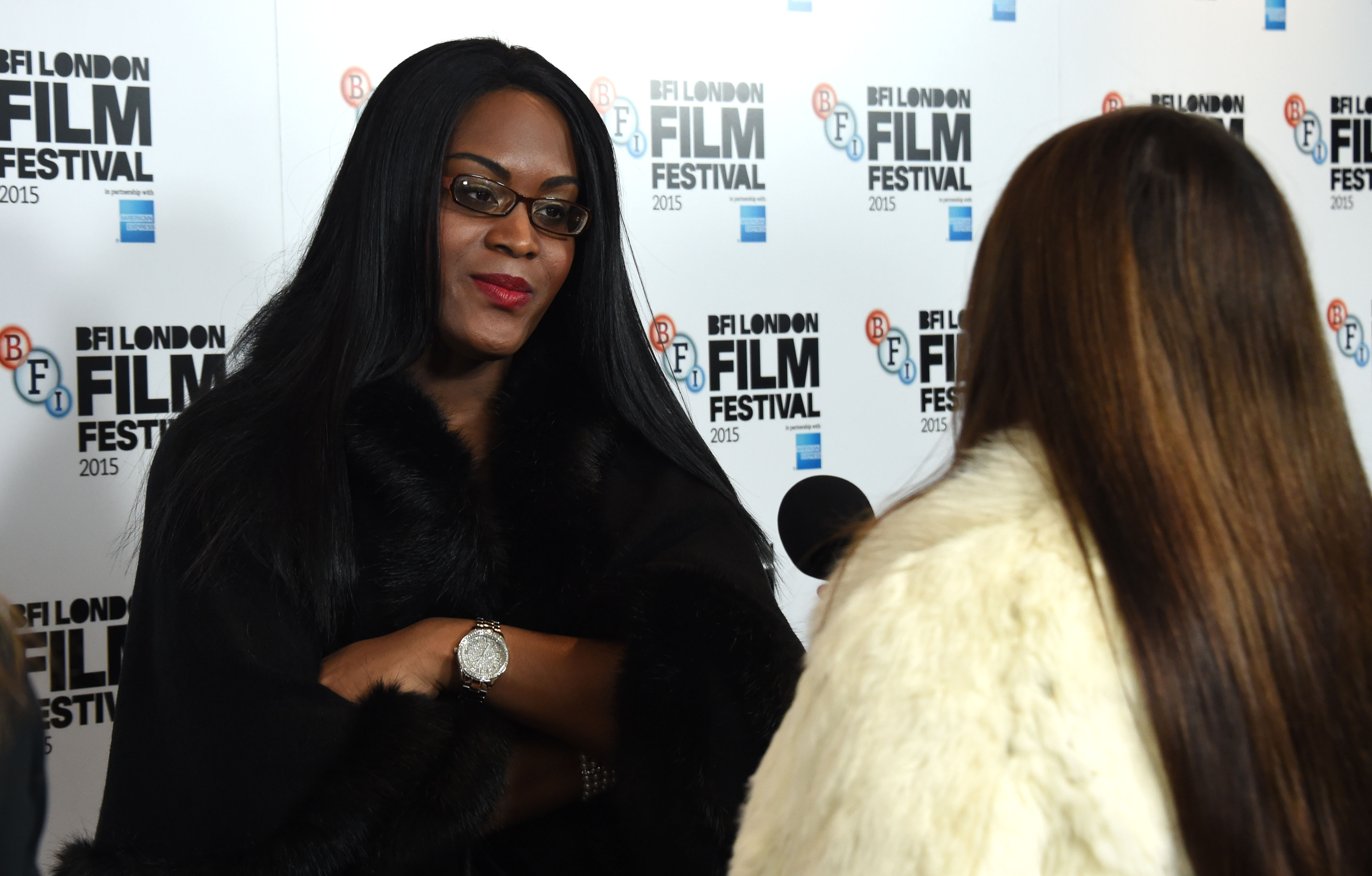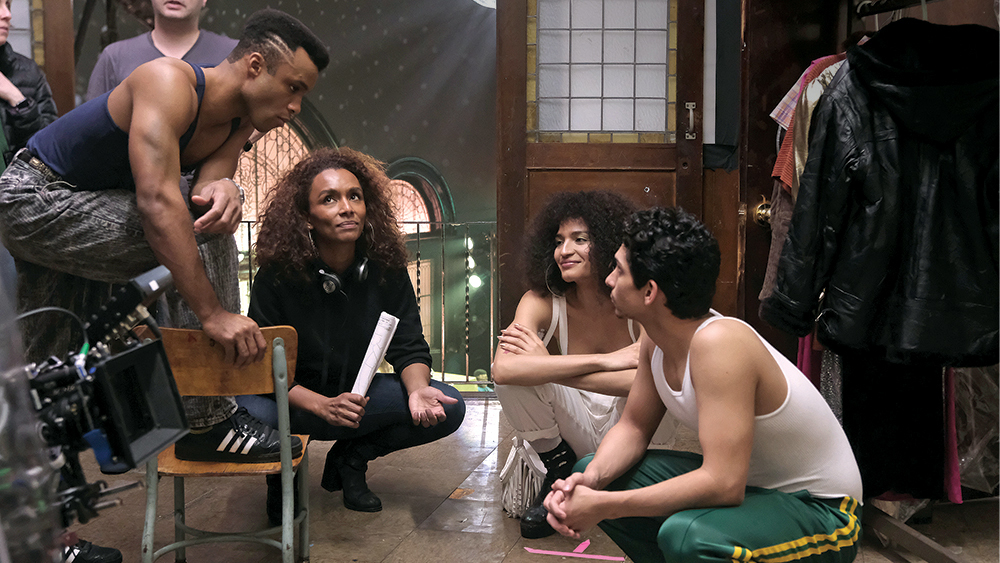Are cisgender actors held to different standards than trans and nonbinary actors? There’s plenty of evidence that responds to that with an overwhelming yes.
On Sunday, Pose star Indya Moore touched on those discrepancies on social media. “Marginalized artists shouldn’t have to need to be rooted in social justice work also. Black and brown and queer and trans folks deserve that option,” they wrote.
In today’s (necessarily) highly-politicized society, few film and TV industry folk aren’t expected to be outspoken. Fans want to know who they’re supporting so as to avoid giving credence to a person whose views or values might decisively contradict their own. Still, there are plenty of celebs who fly by without claiming a socially conscious stance—but the same concessions aren’t given to trans and non-binary actors.
The initial tweet from Moore has since been deleted, but a telling response from a fan of the FX show remains: “I literally just finished watching Pose, S2, Ep. 7 and was marveling over your incredible acting talents and then saw this tweet from you. You deserve ALL the praise and accolades, from everyone,” they wrote.
A quick peruse through reviews of Pose reveals that critics focus primarily on the groundbreaking nature of the show. To see so many trans actors in a single cast on a cable network is monumental, for sure, but what about their acting? Were these reviews analyzing another show—say, one predominantly starring cisgender actors—some discussion of the quality of performances would likely be included.

A review in The Atlantic comes close to discussing Moore’s achievements on-screen: “Angel [Moore’s character] is sad-eyed but willful” and “one of the show’s strongest pillars.” Still, it’s hard to discern whether this review is referring to Moore’s actual performance or the character they play.
In GQ’s Pose review, Mj Rodriguez is described as being “right” for the role—but there’s no mention of her acting. Instead, they say, Rodriguez is a good fit for the role because of the similarities between that of her character Blanca’s life and her own.
“Rodriguez joined a house as a teenager, and through ballroom culture and her work in theater, she knows firsthand what it feels to be a part of a chosen family,” it reads.
This is yet again another example of an almost spotlight on performance rather than an identity—but almost isn’t enough. The writer conflates Rodriguez with Blanca as if the actress is literally the character: “Rodriguez is the heart of Pose, a woman who is fiercely protective of those she loves, deeply compassionate, all while recognizing the cards are stacked against her. She wants to leave behind a legacy. She doesn’t just want to survive, but live.”
Reviews that note the identities of trans and nonbinary actors without referring to their acting feels like a tokenizing approach to criticism. Why is there so little discussion of performance and such an emphasis on their identity?
Especially dehumanizing are the questions regarding body-revealing scenes, in which the craft of acting is hardly the focus. In one instance, writer Lesley Goldberg of The Hollywood Reporter asks actor Elliot Fletcher (Shameless) about his participation in “powerful sex scenes” that are “true to the transgender experience.” The inquiry is uncomfortable to read.
In his response, Fletcher avoids getting into the details of these particular scenes altogether and instead reframes his answer in the context of his mindfulness of authenticity of characters he plays in general.
Non-binary Billions star Asia Kate Dillon is similarly probed in a New York Times interview: “Your character has had some nude scenes… Were you comfortable with that?” asks writer Alexis Soloski.

That being said, the increasing prevalence of trans and non-binary actors on-screen, as well as their prominence in terms of celebrity, does indicate a positive change. Representation has inarguably increased in the last decade. : In 2013, there was the successful debut of Orange is the New Black, in which Laverne Cox stars. In 2014, there was Transparent, helmed by non-binary director Joey Solloway who cast quite a few transgender actresses in 2014, despite the issue with cisgender man Jeffrey Tambor playing a trans woman (and his behavior on-set). Then, in 2015, there was the release of the independent film Tangerine, which featured unforgettably genuine performances by Kitana Kiki Rodriguez and Mya Taylor, who also weighed heavily in its creation process.
But Taylor, who won both Spirit and Gotham awards for her Tangerine performance, told The Hollywood Reporter in 2018 that she felt pigeonholed: “When I was doing interviews, they’d always introduce me [as] ‘trans actress Mya Taylor is here with us today to talk about…’ It’s so annoying because if I were anybody else, it would be, ‘Award-winning actress Mya Taylor is here today.’ I feel like that is the way to present me. I’m just so tired of the labels and I’m just so tired of how hard it is. You know, you would think that after the Spirit Award people would be knocking my door down to give me roles.”
Taylor added that many auditions were for parts that focused on trans “victimology,” which she feels don’t represent the trans community well. “I want to play just regular female roles,” she told writer Bryan White.
Fletcher echoes this sentiment: “I don’t want to be some caricature version of a trans person,” he says. “I want to play real people. The nerd within me wants to play a version of Bruce Campbell in Evil Dead. I’d love to be in a horror movie.”

The opportunities for trans and non-binary actors may be expanding, but these gigs seem to generally come with the caveat that the character must be outspokenly, visibly trans or non-binary—they must obviously represent their community in order to afford the show its diversity of identity cred. And their conduct on socials, as Moore points out, must be political, too.
In conversation with Jude Dry for Indiewire, Laverne Cox also points to these discriminatory conditions. “Multiple trans actors are being told, either by casting directors or agents, that they were ‘not trans enough’ for specifically trans roles,” Dry writes. “Such a baffling comment would be frustrating enough if they weren’t also being shut out of auditions for cisgender roles.”
For Black and POC trans actors, the chances to play cisgender roles, or trans and non-binary roles outside this new set of industry standards, are even slimmer than for their white counterparts. But if the entertainment industry’s trans and non-binary BIPOC do not advocate for themselves, who will? If they are not activists, will someone else within the industry call out mistreatment or discrimination for them?
The hope is that many will follow their lead. Those who hold privilege and benefit from oppression should actively work toward dismantling systemic inequities.
But, as Moore points out, it seems that—as is the case with most oppressed peoples—the burden of creating change and educating their oppressors falls unfairly on the very people who are oppressed.







